‘Supporting women is important to me’: Thelma West on jewellery design and philanthropy
We shine the spotlight on Thelma West’s philanthropy initiatives
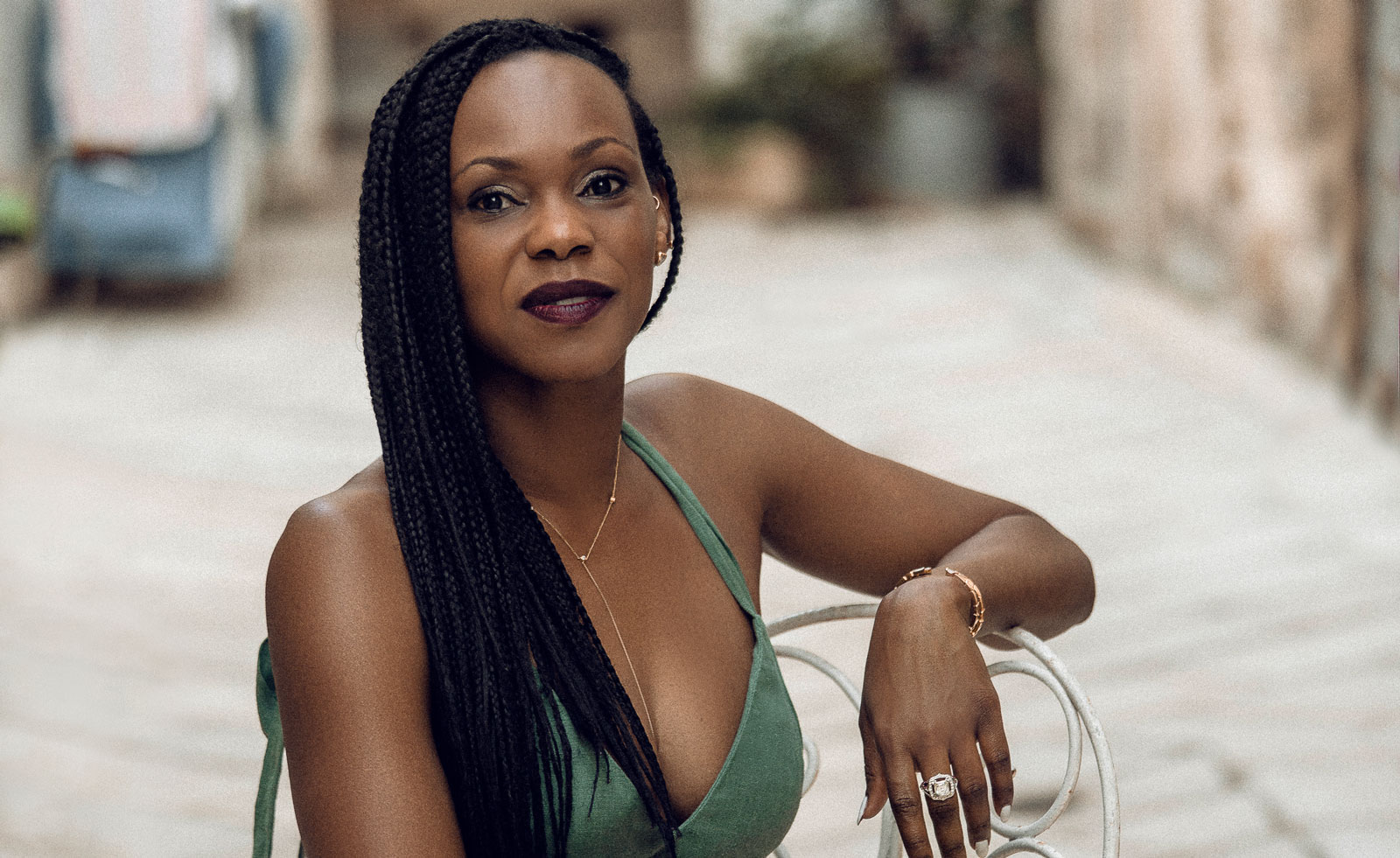
Nigerian-born, London-based jewellery designer Thelma West draws on both her personal history and extensive experience in the industry for a host of philanthropic initiatives. Here, she tells us what drives her work in Nigeria and beyond, and how her own experience as a minority in the industry has affected her outlook.
Wallpaper*: Which issues are key for you and how are you supporting them?
Thelma West: Supporting women in the industry is very important to me. I have always had a female only team and continue to prioritise this hiring structure. The objective here was to create a safe space for more women, providing opportunities to learn and grow in knowledge and experience.
Within the industry and my work, sourcing is also an issue that I take very seriously. Not without its issues, I continue to push for increasingly sustainable practices for the precious raw materials we work with. The people that benefit from the price we pay are important to me.
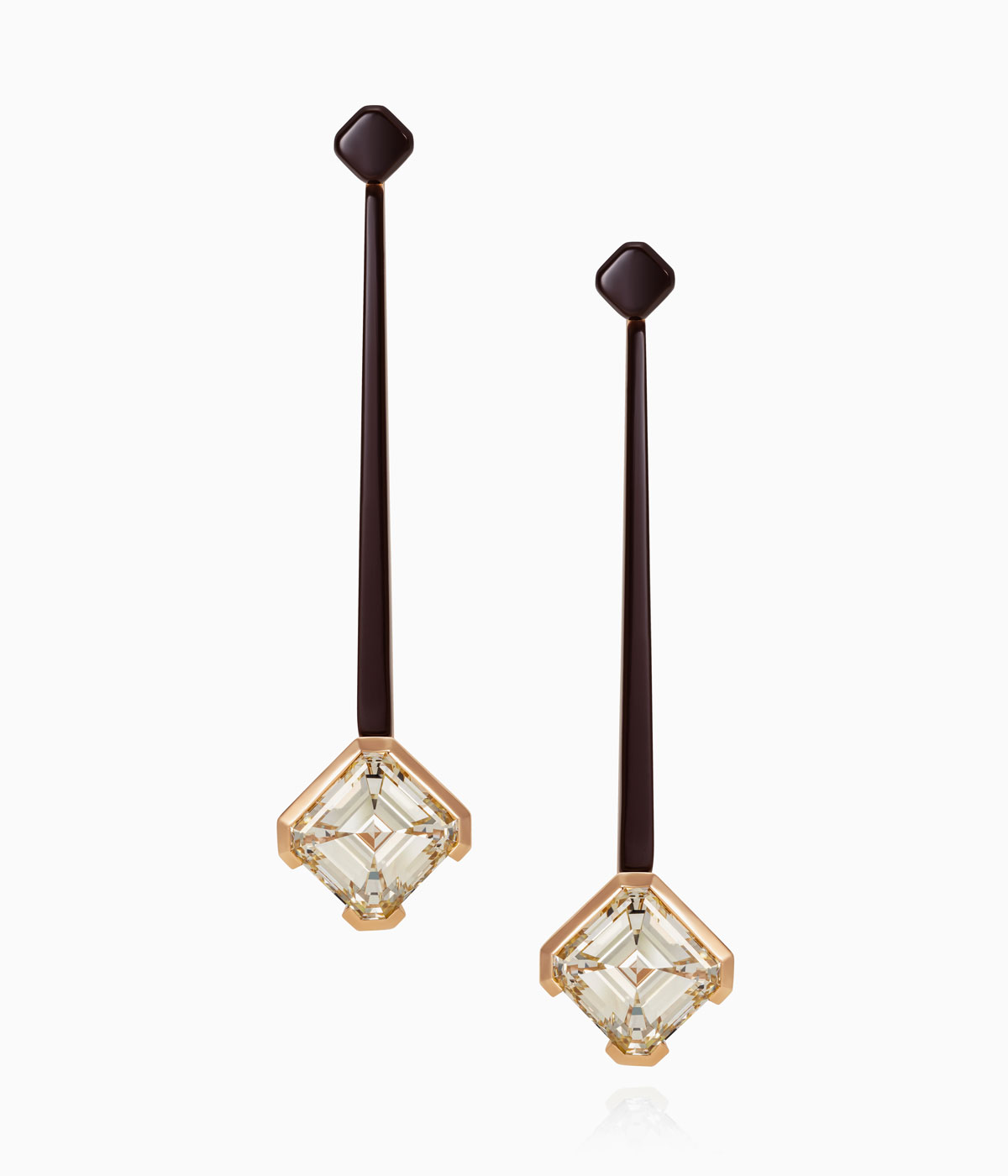
Thelma West Asscher 8 earrings
I’m also committed to supporting communities in my homeland, Nigeria. A portion of every sale we make goes towards paying hospital bills for children in need and educating young women to secondary level. I’ve also been working hard to support the women of Nigeria as well. This is important for me to share because my first attempt has been a failure. But we must fail sometimes, learn, and keep moving in the right direction. Employment levels are not great in the country and women fall behind on every front. I have spent some time working on a plan for the ministry of solid minerals which focuses on getting women off the streets and into workshops, making jewellery, cutting gems, polishing and more, all based around the resources the country is blessed with. It was not successful but it’s still very much a project that is needed, so it’s something we will continue to work on and hope there are people eager for genuine change on the other side.
W*: Your interests run from educating the next generation in Nigeria to readdressing the balance in London - how important is it to you for your work to encompass these diverse strands?
TW: Working these issues and causes into my art was the only way that worked for me and my team. It’s a great source of joy and satisfaction knowing that when we are successful doing what we do, other people feel it too. Whether it’s telling a mother that her child can get the treatment they desperately need, or a young girl that her education is not the first thing to give up when things get tough, it’s a responsibility we do not take lightly.
The reality is I feel like I’m doing very little in the face of all the challenges we are confronted with daily in the world, but we keep going knowing that people depend on us.
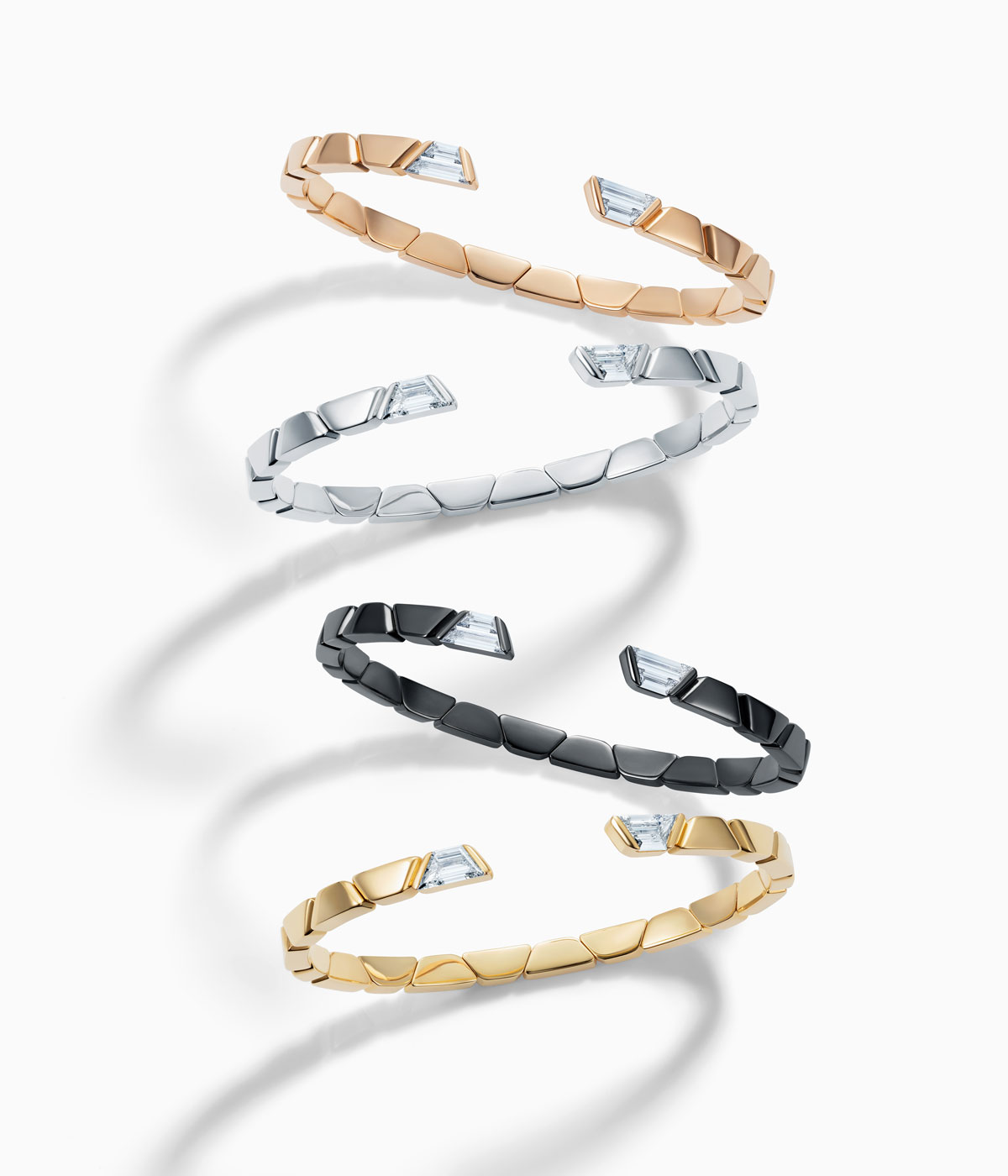
Thelma West Embrace Stack bracelets
W*: Can you tell us about your experience as a minority in the industry and how it has informed your actions?
TW: It’s been a long hard road, but I held on to embracing hard work, resilience, determination and finding joy in the midst of the climb. I have not achieved my dreams yet, but on the way to that, I feel it is my duty to hold my hand out for someone else who needs a hand in whatever way I can help with their art or life.
I try to find beauty in all I do, and my heritage influences most of that. For example, I chose to display works by African artists in my space, each telling their own story, not only because I see myself in their stories, but also because I am able to showcase these works to more people who get to experience a little bit more than they expected. And who knows, maybe they’ll become fans of the artists they discovered or fell in love with at the TW studio.
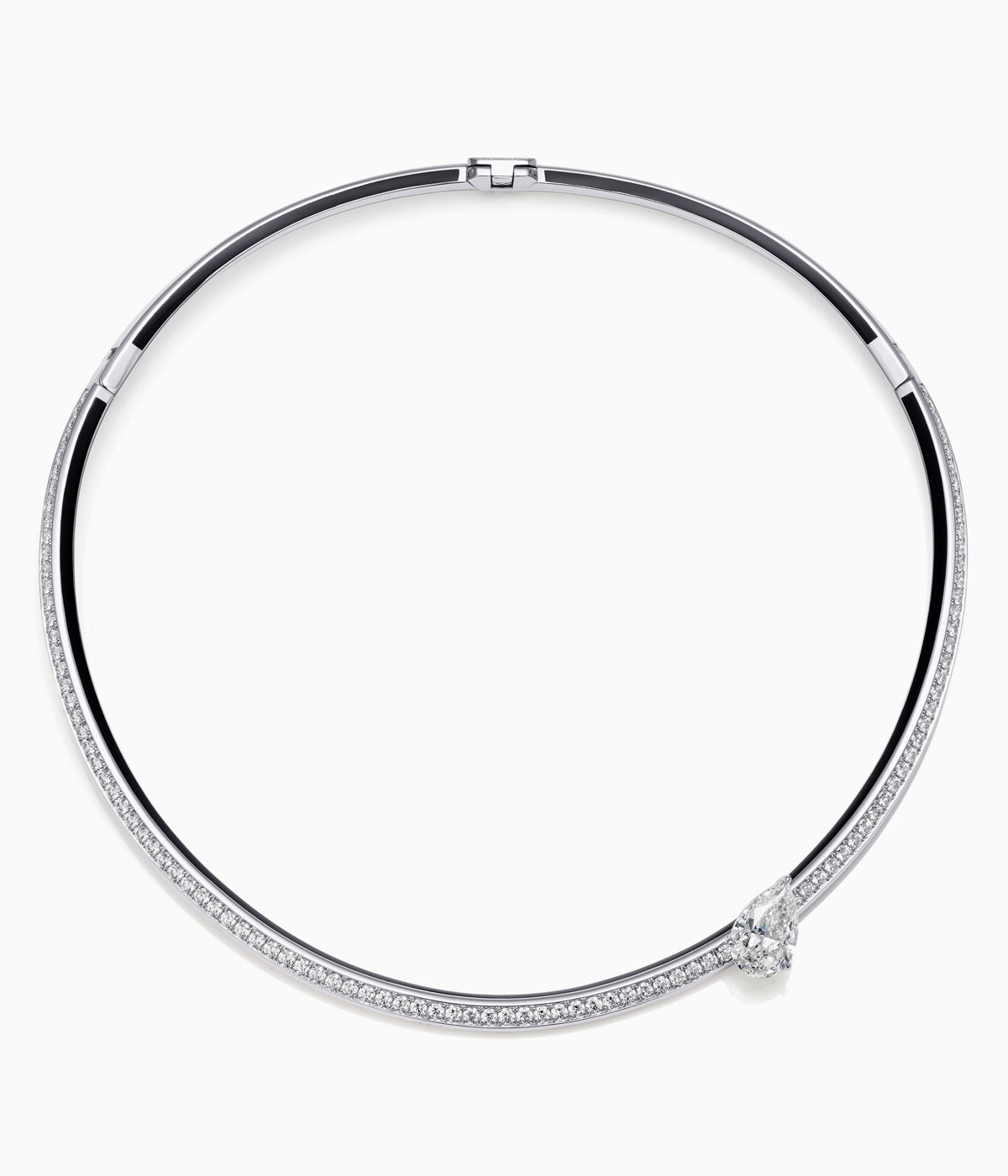
Thelma West Apòstrofe necklace
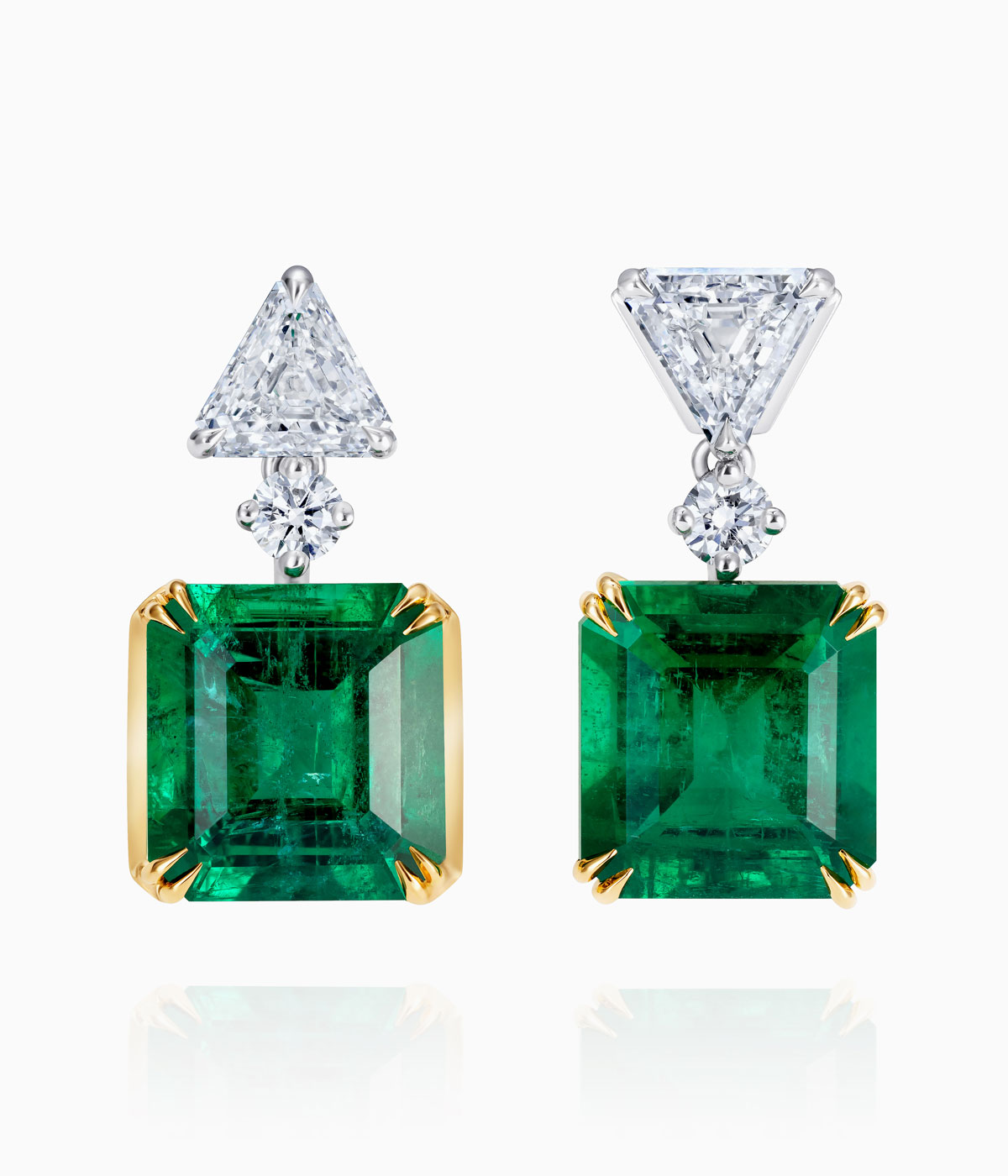
Thelma West Tai & Ken earrings
INFORMATION
Wallpaper* Newsletter
Receive our daily digest of inspiration, escapism and design stories from around the world direct to your inbox.
Hannah Silver is the Art, Culture, Watches & Jewellery Editor of Wallpaper*. Since joining in 2019, she has overseen offbeat design trends and in-depth profiles, and written extensively across the worlds of culture and luxury. She enjoys meeting artists and designers, viewing exhibitions and conducting interviews on her frequent travels.
-
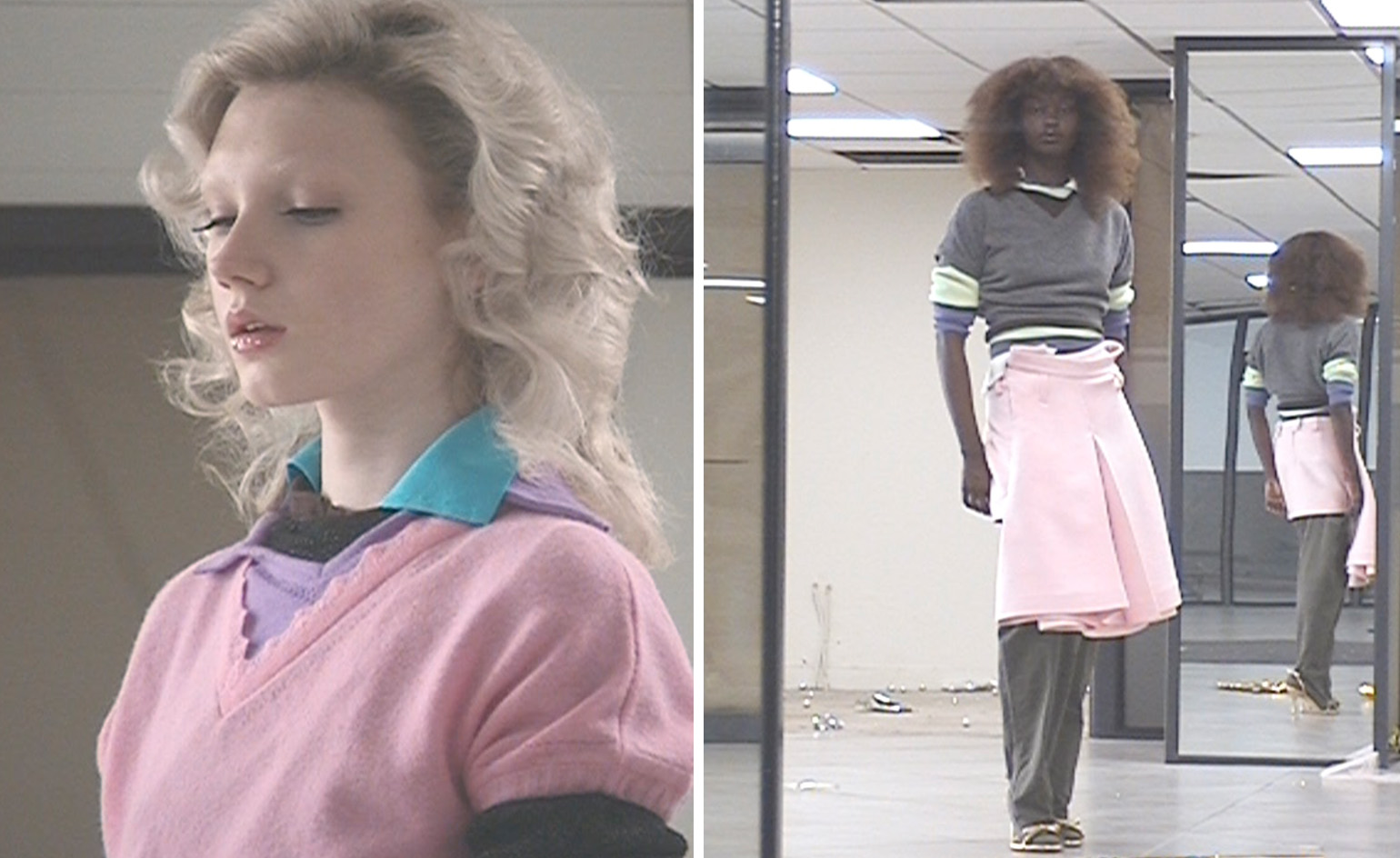 All-In is the Paris-based label making full-force fashion for main character dressing
All-In is the Paris-based label making full-force fashion for main character dressingPart of our monthly Uprising series, Wallpaper* meets Benjamin Barron and Bror August Vestbø of All-In, the LVMH Prize-nominated label which bases its collections on a riotous cast of characters – real and imagined
By Orla Brennan
-
 Maserati joins forces with Giorgetti for a turbo-charged relationship
Maserati joins forces with Giorgetti for a turbo-charged relationshipAnnouncing their marriage during Milan Design Week, the brands unveiled a collection, a car and a long term commitment
By Hugo Macdonald
-
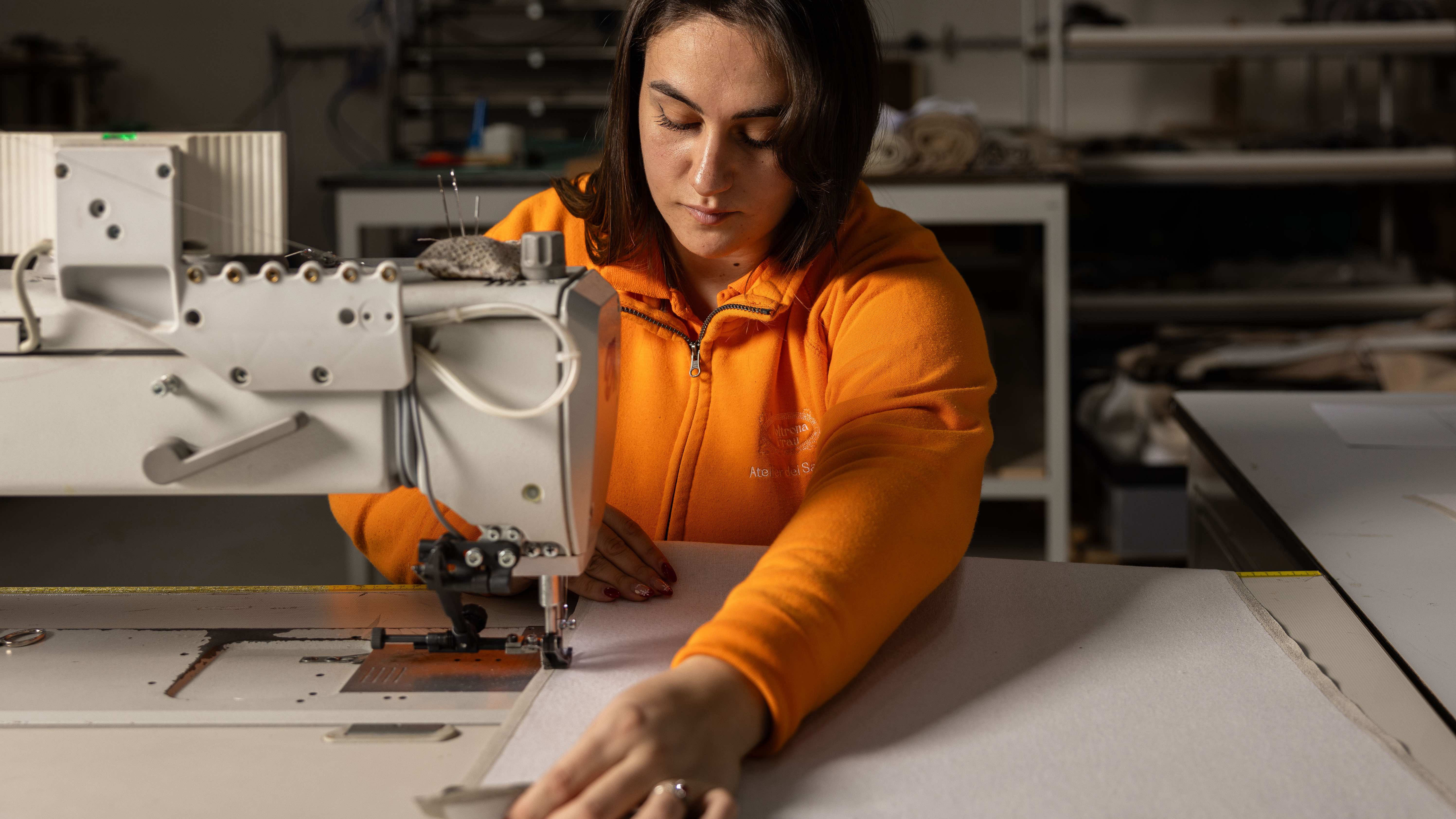 Through an innovative new training program, Poltrona Frau aims to safeguard Italian craft
Through an innovative new training program, Poltrona Frau aims to safeguard Italian craftThe heritage furniture manufacturer is training a new generation of leather artisans
By Cristina Kiran Piotti
-
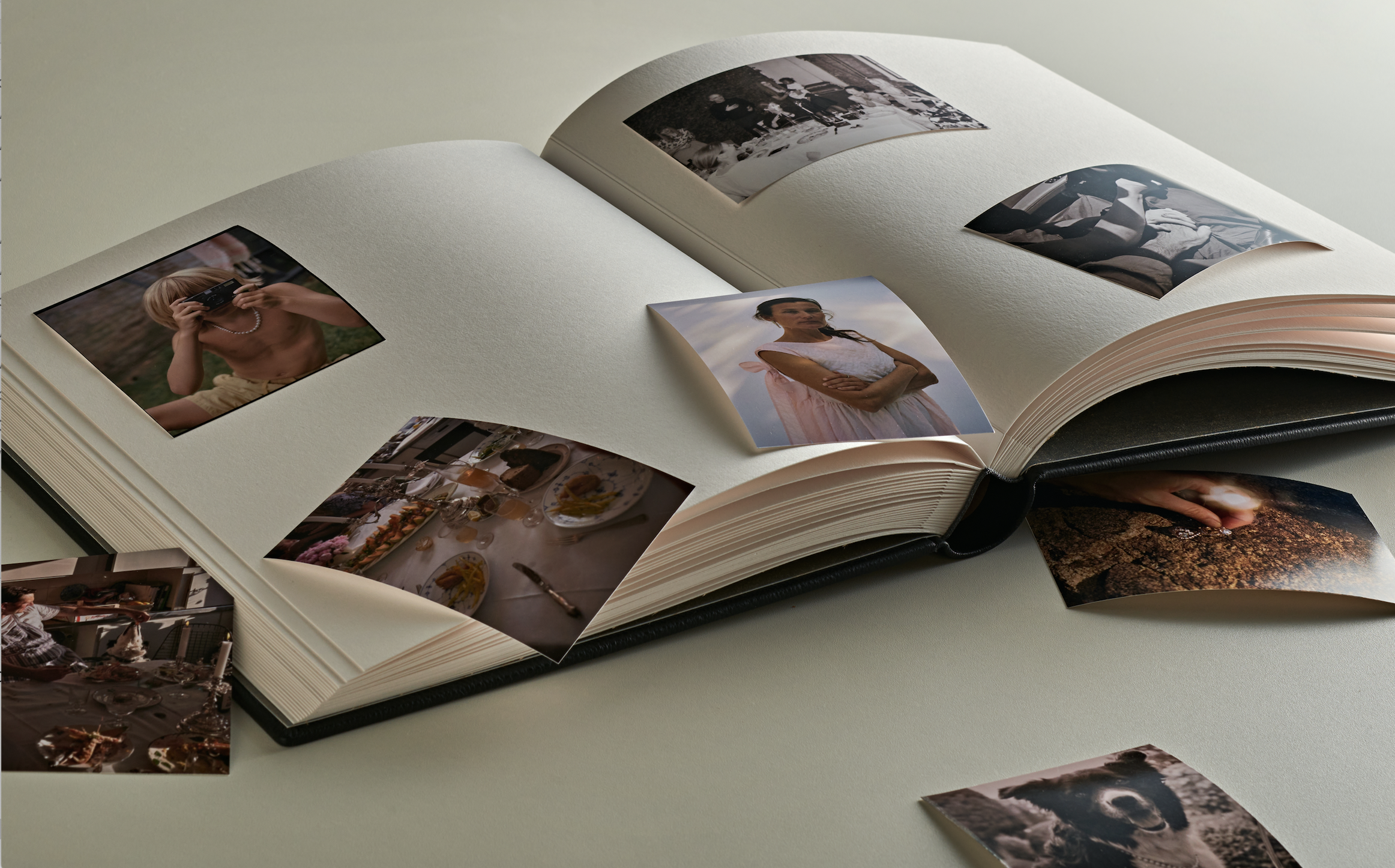 At home with Sophie Bille Brahe
At home with Sophie Bille BraheSophie Bille Brahe’s modern jewellery designs, embracing pearls and diamonds for everyday wear, have quietly upended the fine jewellery market. Here, she talks inspiration and creative process, hopes and dreams, and downtime and dogs
By Tilly Macalister-Smith
-
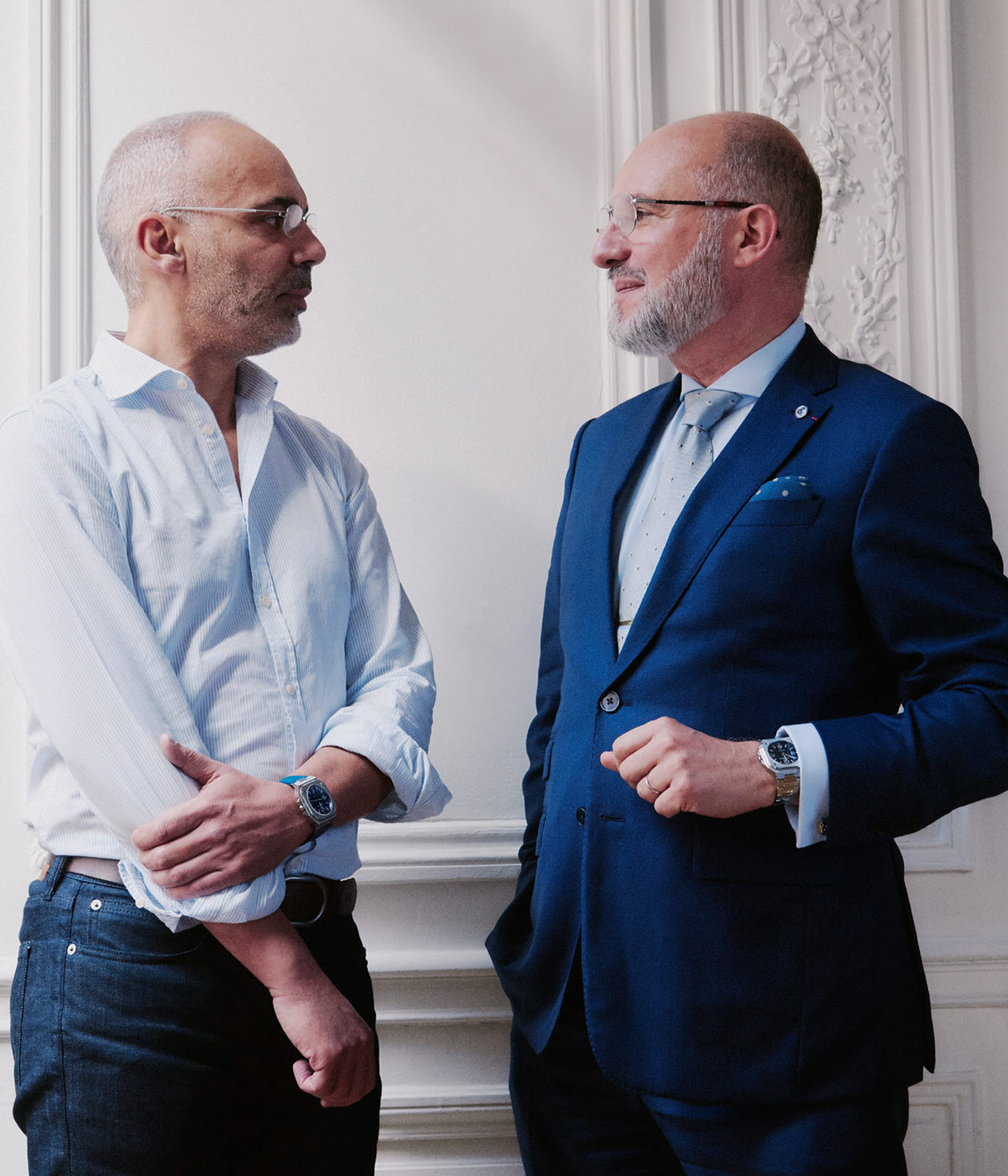 Bon appétit: we grab a bite to eat with Bell & Ross
Bon appétit: we grab a bite to eat with Bell & RossEarlier this year, we met the founders of the watch marque for a catch-up at restaurant Oxté in Paris
By Caragh McKay
-
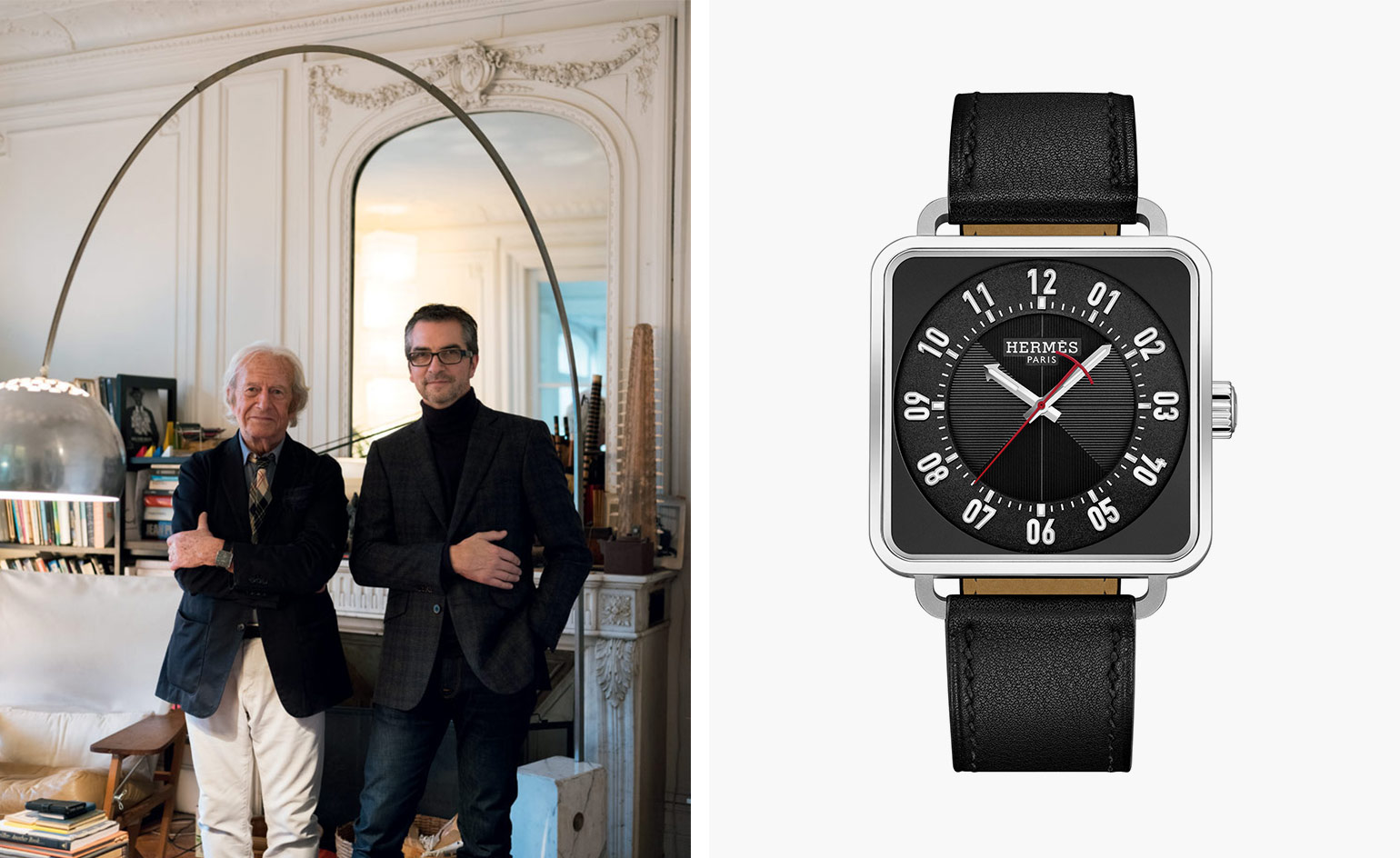 The watch designers: Marc Berthier and Philippe Delhotal on the Carré H
The watch designers: Marc Berthier and Philippe Delhotal on the Carré HBy Caragh McKay
-
 Grima the great: a personal recollection of a 1960s jewellery design visionary
Grima the great: a personal recollection of a 1960s jewellery design visionaryBy Caragh McKay
-
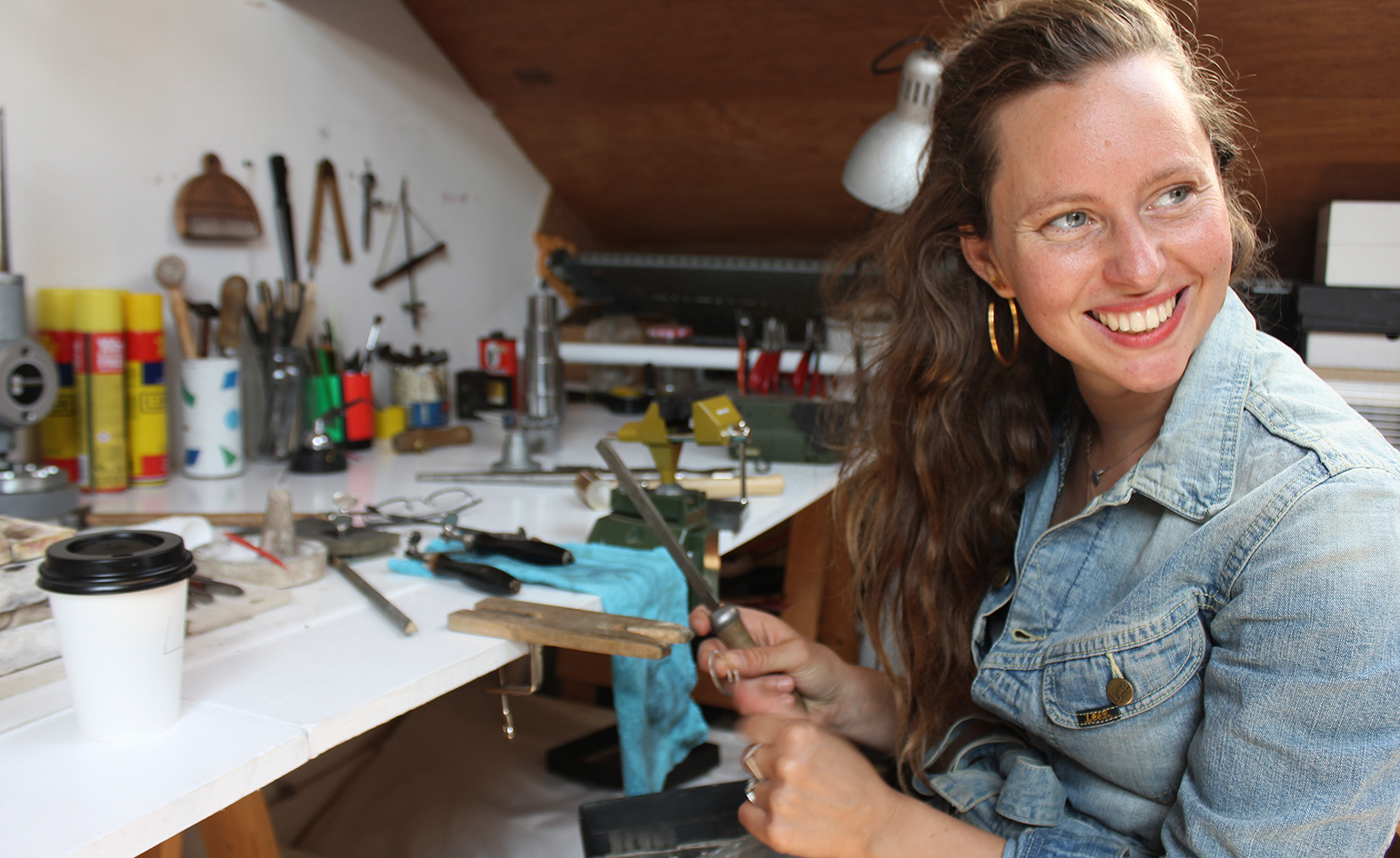 Big ideas: in the studio with British jewellery designer Jenny Sweetnam
Big ideas: in the studio with British jewellery designer Jenny SweetnamBy Elly Parsons
-
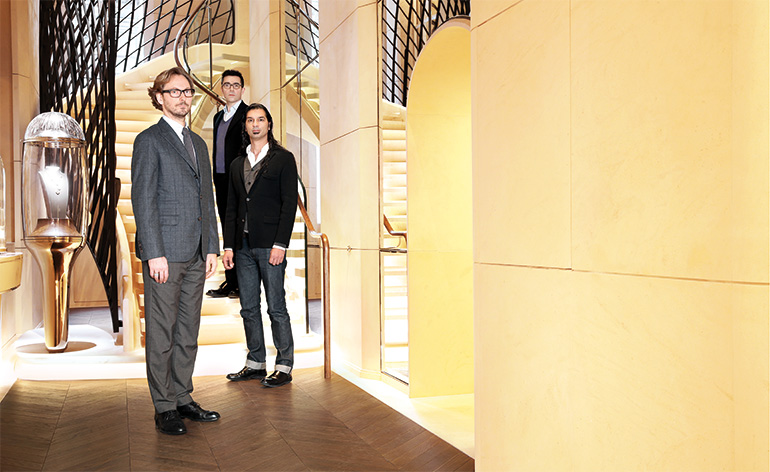 Wonder walls: how Van Cleef & Arpels stays ahead of the curve
Wonder walls: how Van Cleef & Arpels stays ahead of the curveBy Caragh McKay
-
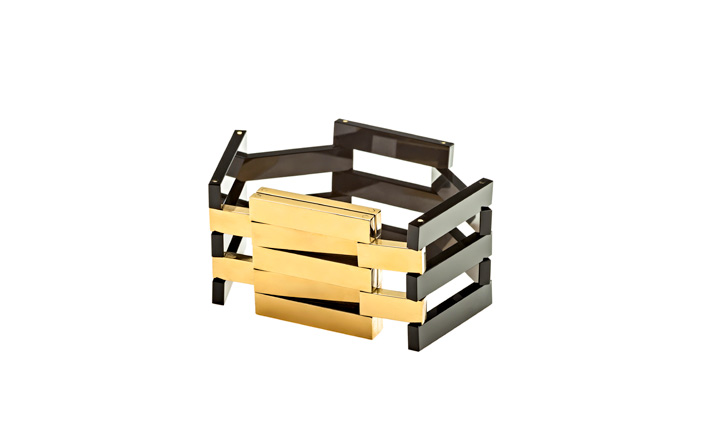 A Q&A with Uncommon Matters jewellery designer Amélie Riech
A Q&A with Uncommon Matters jewellery designer Amélie RiechBy Lauren Cochrane